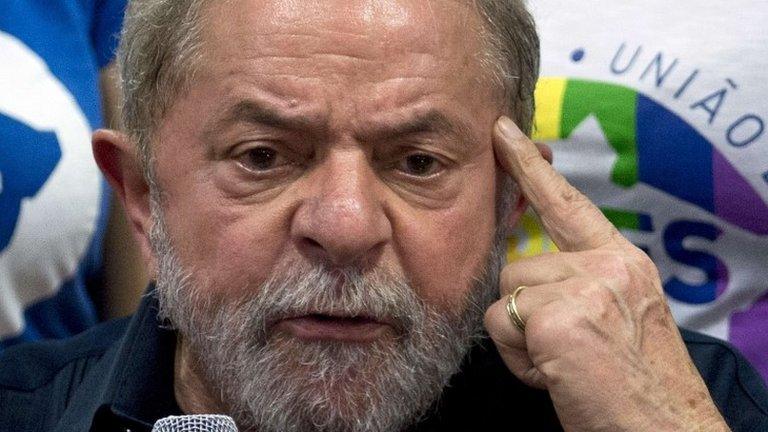Brazil tumbles like 'House of Cards' in crisis
- Published
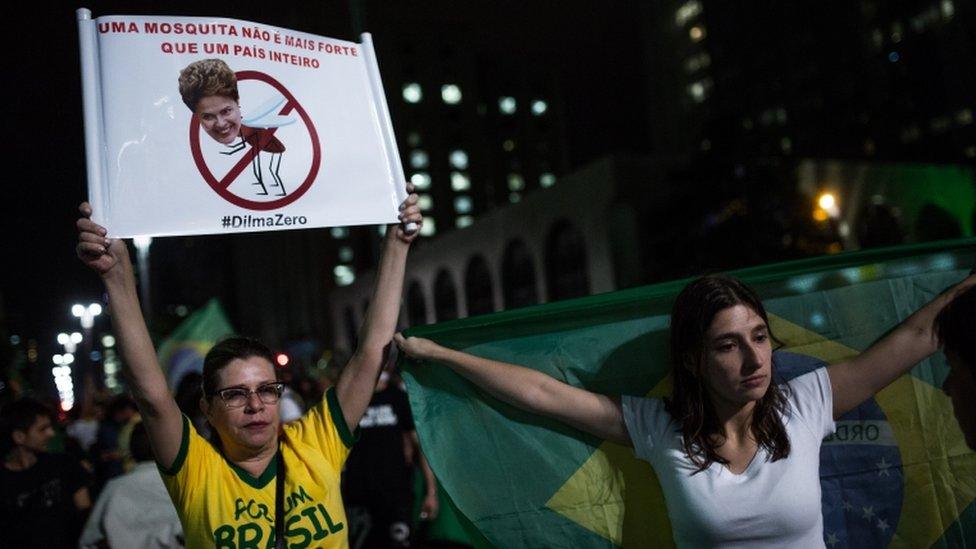
The scandal has led to street protests
The plot to Brazil's political crisis has become so complicated that even makers of political drama 'House of Cards', external joke they are now following events.
There is even an online quiz, external where one has to guess: did it happen in Brazil or in House of Cards, or both?
But this is no laughing matter in Brazil.
This is the country's toughest political crisis since the early 1990s, when its first democratically-elected President in the modern era, Fernando Collor, was removed from power.
On Wednesday night the crisis took a bizarre turn, as a judge revealed phone conversations between President Dilma Rousseff and her predecessor Luiz Inacio Lula da Silva and suggested they are trying to obstruct the course of an investigation into corruption.
Spontaneous protests erupted in more than 15 cities across the country and riot police acted against demonstrators in Brasilia.
Both Rousseff and Lula - as he is known - are fighting for their political survival.
Their political project has been shaping Brazil since 2003, when Lula defeated the opposition and established the Workers' Party at the top of Brazilian politics.

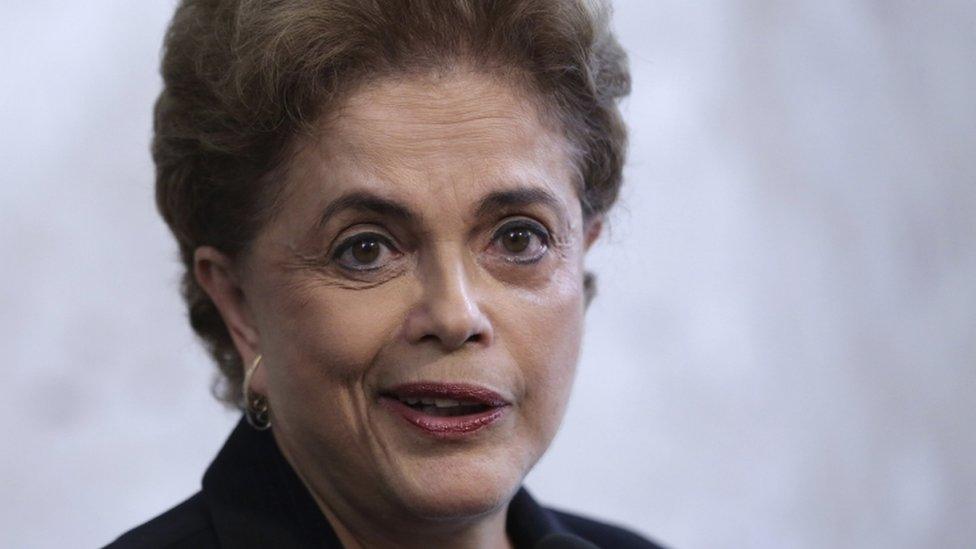
President Rousseff is facing calls for her impeachment
Lula in the spotlight

Rousseff is under fire for allegedly doctoring government accounts last year and could be suspended from her job as early as May if she loses a key vote in Congress.
Lula is investigated for allegedly having received gifts from construction firms that were benefitted with inflated contracts from state oil giant Petrobras.
Two weeks ago it looked like investigators were close to charging Lula for corruption, after he was detained and questioned for three hours.
On Sunday, opponents of Rousseff and Lula staged one of the country's largest demonstrations in history asking for her removal and his imprisonment.
Strange times
Usually when politicians are involved in corruption allegations, they are either fired or suspended from their jobs - not invited into the government.
But these are strange times in Brazilian politics.
Rousseff's reaction this week took everyone by surprise.
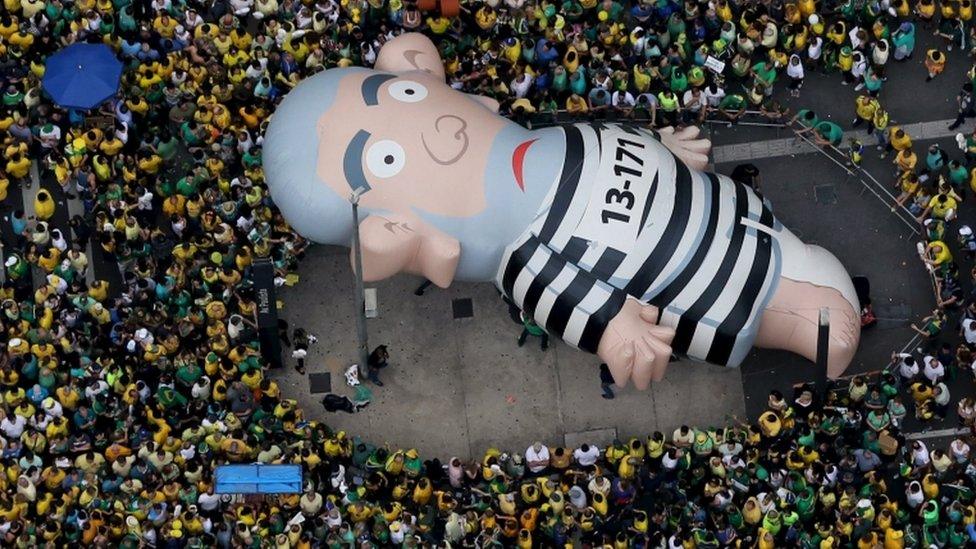
A Sao Paulo demonstration featured a huge inflatable doll of President Lula
She invited Lula to become her Chief of Staff and help lead her efforts out of the impeachment mess.
On Wednesday, she justified her decision by saying he is "important and relevant for his unequivocal political experience".
She dismissed criticism that Lula was only being offered a job to escape criminal charges.
As a minister, he will have prosecution privileges and only Brazil's Supreme Court will be able to try him.
She also denied that Lula would become a "de-facto" President - a "super minister" more powerful than the President herself.
"I have to laugh when you ask that," she told journalists on Wednesday.
But hours after Rousseff's announcement to the press, a "bomb" was dropped in Brazil's political scene.
A phone conversation between Rousseff and Lula - taken earlier that day - was released to the public.
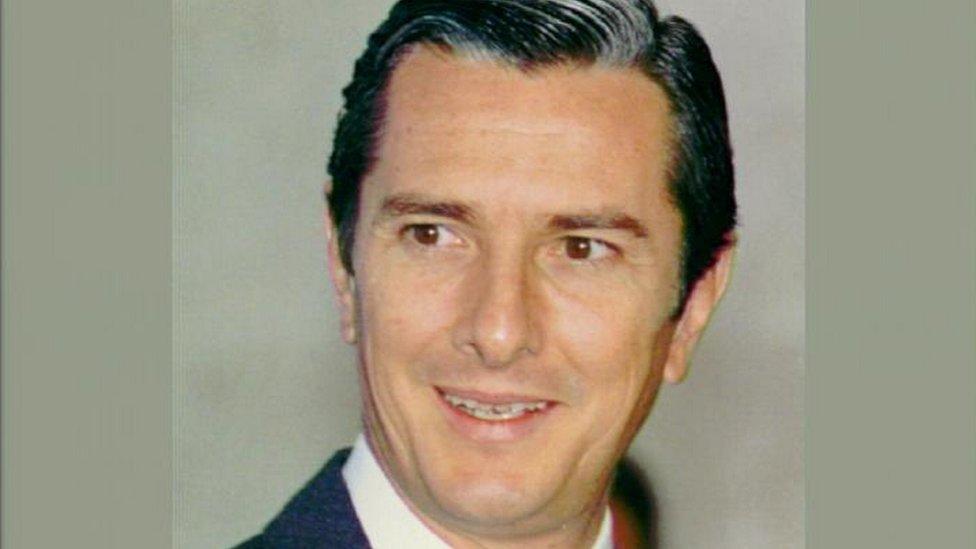
Fernando Collor was removed from power in 1992
Rousseff tells Lula that she is sending him a document which he can use "if necessary".
That document confirmed Lula's nomination as a minister.
One reading of that conversation suggests that Lula should use it in case prosecutors want to charge him before he is sworn in.
That would corroborate the idea that Lula's nomination is nothing but a plan to save him from prison.
'Hero' judge
The phone conversation was revealed by federal judge Sergio Moro who has become a central person in the Petrobras probe and a hero to many people who are anti the Workers' Party..
In Sunday's mass protests, demonstrators showed hostility towards opposition politicians. The only unanimous figure amongst them was Moro.
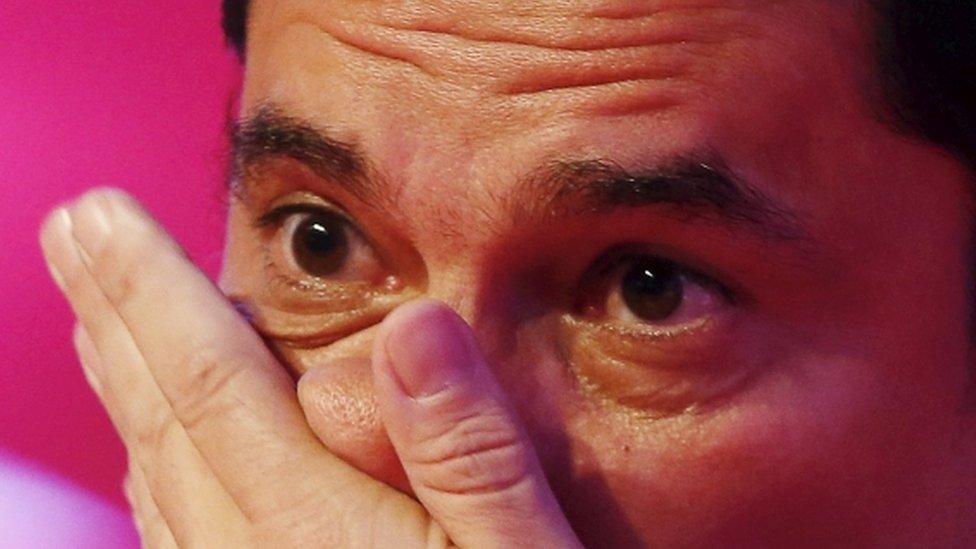
Sergio Moro who has become a central person in the Petrobras probe
Moro has been granting power to prosecutors and the police to investigate, arrest and charge.
He has also judged and sentenced some of Brazil's most powerful figures.
The repercussions to the phone conversations were immediate. Protestors erupted into the streets in over 15 cities and in Brasilia, anti-riot police stepped in.
Rousseff's government announced that she would sue Moro for illegally releasing her conversation.
It also emerged that Lula's phone was tapped by the Federal Police, but that the key conversation with Rousseff had been recorded minutes after the legal mandate for the tapping had expired.
Next chapters
The plot of Brazil's political crisis has become so complicated that it is impossible to predict what will happen next.
Lula will be sworn in on Thursday as a new minister.
On Friday there are planned demonstrations by his supporters across the country.
Next month, Rousseff's key political ally - the PMDB party - has announced it may leave her government.
And in May, Congress will begin voting whether to carry on with Rousseff's impeachment process.
Meanwhile the country's economy is receding - in the face of its worst crisis in over 20 years.
Rousseff has dismissed the idea that Lula would implement a sharp turn to the left - and says she will carry on with austerity measures.
But it is hard to see how she will deliver on her economic reforms with so many developments in politics.
Not even the scriptwriters for House of Cards could have devised such a complicated and explosive thriller.

Lula: 'Man of the people'
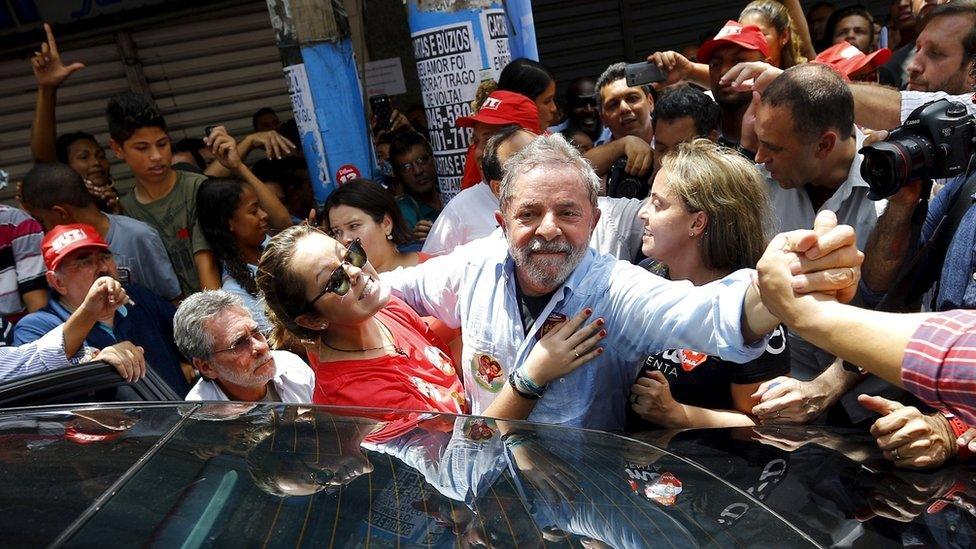
Born 27 October 1945 into a poor, illiterate family in Pernambuco state
Worked in Sao Paulo's car industry
Achieved national fame leading strikes during Brazil's dictatorship
In 1980 he founded the Workers' Party (PT), the first major socialist party in Brazil's history
Elected president in 2002 at the fourth attempt and went on to serve two terms
Pumped billions of dollars into social programmes such as Bolsa Familia that benefited tens of millions of Brazilians
When he left office in 2010 he said: "I am leaving government to live life on the streets. Man of the people that I always was, I will be more of the people than ever before"
Currently under investigation over his deals with construction firms

- Published17 March 2016
